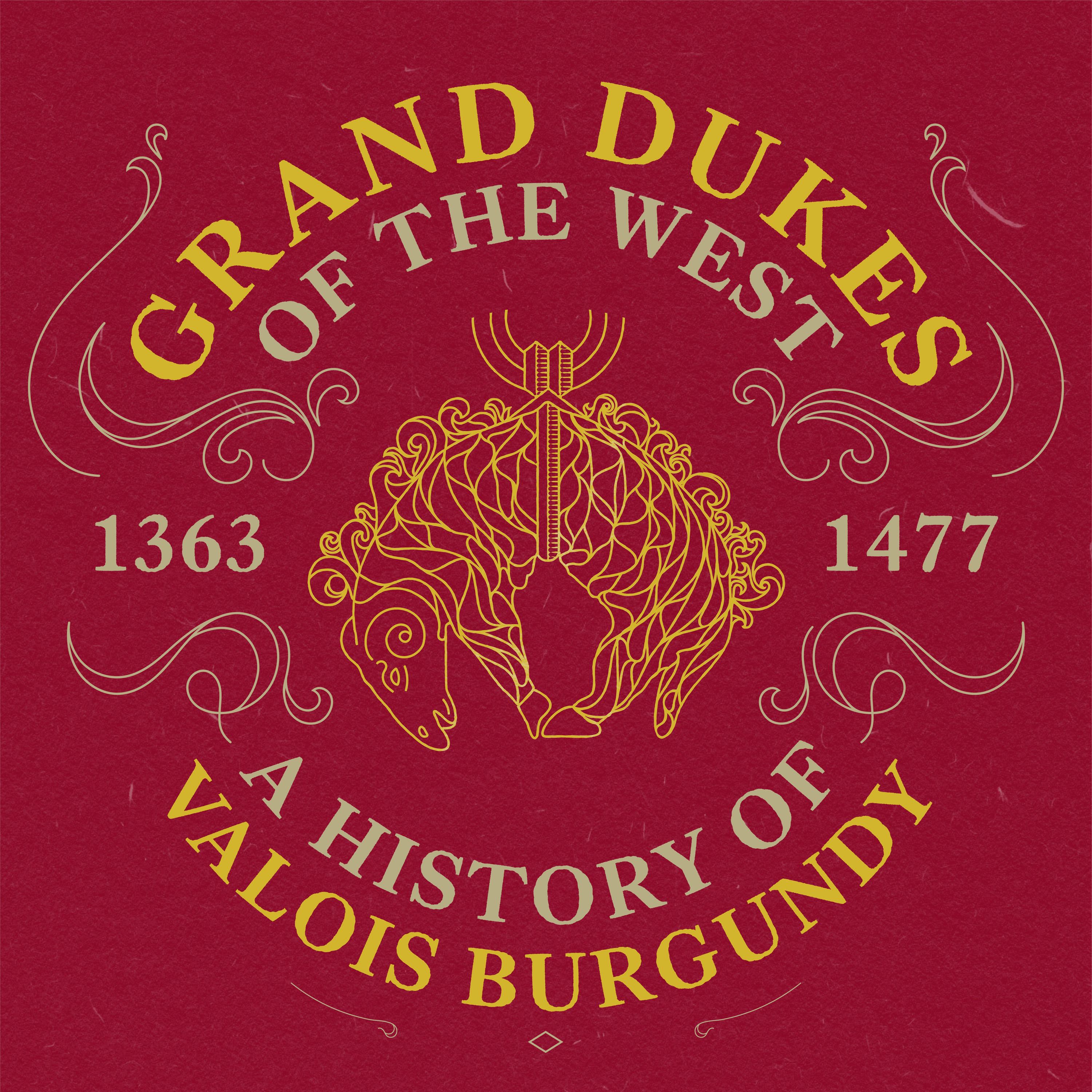
La Fayette, We Are Here!
La Fayette, We Are Here!
Napoléon III - France's Last Monarch
Imagine growing up with the world’s most famous uncle, the one who conquered Europe and redefined France. For young Louis-Napoléon Bonaparte, bedtime stories came with cavalry charges and imperial dreams.
In this episode, we follow the nephew who turned admiration into ambition, rising from exile to become Napoléon III, Emperor of the French.
Join us as we talk about France's Last Monarch!
Timecodes
Introduction
04:27 - A Royal without a Kingdom
09:49 - Conspiracies and the Road to Power
17:08 - From President to Emperor
22:38 - The Empire Strikes Back
29:21 - The Liberal Empire
36:41 - The Collapse
42:34 - Conclusion
Relevant Episodes:
Napoléon Part II - From Paris to Saint Helena
The 1830 Revolution. Barricades in Paris!
Music: Marche pour la cérémonie des Turcs, composed by Jean-Baptiste Lully, arranged and performed by Jérôme Arfouche.
Artwork: Napoléon III en uniforme de général de division dans son grand cabinet des Tuileries. Hippolyte Flandrin, 1861. Château de Versailles.
Reach out, support the show and give me feedback!
What is more commonplace than being paid a visit by your dear uncle? If you picture yourself as a five year old boy, it’s probably the highlight of your week! Especially in the early nineteenth century, when communications were a lot slower than they are now.
Hence, what a joy it must have been for children back then to seeing their dear uncle arrive and relish them with stories of his latest adventures! And imagine, dear listeners, when that uncle was no other than Emperor Napoléon, coming back from a campaign in Russia, Germany or elsewhere. The man had spent the last two decades fighting wars all over the continent and even in Africa, while taking over France and revamping its institutions from the ground up.
That’s the kind of childhood that little Louis-Napoléon Bonaparte experienced. At a very young age, he was impressed by his uncle’s stories. Although not as influential as the famous emperor, he would still have a major impact on French and European history. He would also be emperor, he would also live great adventures both within and without France. Join us for the story of Napoléon III, the last French monarch!
MUSIQUE
Hello and welcome to La Fayette, we are here! The French history podcast, by a Frenchman! I am your host, Emmanuel Dubois, and today, we will be talking about the most famous nephew in history, Louis-Napoléon Bonaparte, aka Napoléon the Third who lived from 1808 to 1873 and ruled over France from 1848 to 1870, first as president of the Republic then as Emperor.
I encourage you to listen to my episodes on Napoléon the first to get an idea of what went on in France and Europe after the French Revolution of 1789. Also, you can listen to my episode on the Franco-Prussian war of 1870 to get more details on that conflict that brought down the Second Empire. I will of course talk about it here, albeit in less detail.
As you will find out, dear listeners, the story of the last French sovereign is one of contrats and contradictions. In meany ways, Louis-Napoléon will ride on the fame of his uncle, proving to be conservative, even reactionary. But he will also be a force for change, especially in Paris, the heart of his empire. He will also be mocked by many of his contemporaries, notably Victor Hugo who called him: "Napoléon le petit" or "the small Napoléon". His wife, Eugénie, will also suffer the ire of French and foreign commentators of the time. In part because of Hugo, a dark legend emerged about Napoléon III and he has been much maligned during his reign and in the following decades.
But before we talk about the events that will shape the destiny of France and Europe in the second half of the Nineteenth century, we must go back to Paris, on rue Cerruti, on April 20 1808. That is the place and time where Charles Louis Napoléon Bonaparte is born. We will call him Louis Napoléon from now on. His parents are Louis Bonaparte, the Emperor's brother, and Hortense de Beauharnais, daughter of Joséphine de Beauharnais, the Emperor's first wife. If anything, European monarchs know how to keep everything within the family, don't they? Let's dive a bit deeper into the early life of Louis-Napoléon.
A Royal without a Kingdom
Louis-Napoléon was born into the ruling class of France. Which at the time, was basically the ruling class of Europe. In 1808, the French Empire was at its greatest. Napoléon was winning batte after battle and the different continental powers were either defeated or trying to befriend the Emperor. Only England, protected by the seas, was still opposing French hegemony. Of course, as you know, the wind would soon turn following the events in Spain in 1809 and, more importantly, in Russia in 1812. But for the moment, the Bonapartes and France were ruling over Europe. Little Louis-Napoléon was destined to play a great role in this brave new world, and his parents knew it very well.
Following the Russian debacle, things started to get messy for the Bonapartes. Louis-Napoléon's parents separated, their mariage had never been a happy one and Hortense soon became the only one in charge of Louis-Napoléon and his brother Napoléon-Louis. I know, their names are confusing. They also had a brother named Napoléon-Charles, who sadly passed in 1807, aged four. In 1815, the whole world fell on France and on the Bonapartes.
That year, the law banned all Bonapartes from French soil, forcing Hortense to leave France with her children. She then bought the Château d'Arenenberg, on the heights of Lake Constance, in German-speaking Switzerland. There, Louis-Napoléon grew up under a comfortable setting, but full of nostalgia for his uncle's lost glory. He received an irregular education, first left to passing preceptors, before his mother entrusted his instructions to Philippe le Bas, son of a Jacobin and a former Napoleonic officer who instilled in him the cult of Napoléon I and "The Art of War.
Before I go one, I should precise why we call Emperor Napoléon, Napoléon the First. After the Hundred days in 1815, Napoléon Bonaparte abdicated in favour of his son, Napoléon, who was recognized as ruler by the French government chambers. He never ruled, obviously, but despite this, his name counts in the line of French monarchs, if you will. Hence, Napoléon became Napoléon I and his son Napoléon II. Eventually, our hero of today's story will become Napoléon III, but let's not get ahead of ourselves.
Back in Switzerland, young Louis-Napoléon's education was both intellectual and military. The young prince developed a sense of duty and a belief in his "destiny". As a teenager, he spoke fluent German and traveled regularly between Arenenberg and Rome, where his mother stayed to escape diplomatic tensions. It was in the Italian capital that he discovered politics, in contact with the Italian liberals, sensitive to ideas of unity and freedom. He soon joined their cause with the Carbonarist movement, in favour of the unification of Italy and the reduction of the Pope's temporal power.
In 1830, he joined the Federal Central Military School of Thoune, led by the future Swiss General Guillaume-Henri Dufour., where he acquired a solid technical training and a taste for military discipline. But the Revolution of the Three Glorious of July 1830, which overthrew king Charles X, deprived him of Anu immediate hope of returning to France. A new law passed in September 1830 prohibited the stay of Bonapartes on French soil. Do listen to our dedicated episode on the Revolution of 1830 to find our what went on in France at the time in more detail.
Shortly after, he accompanied his older brother Napoléon-Louis in the Italian uprising of 1831. Together, they participated un the Carbonarist insurrections in the Papal States, especially in Bologna and Forlì, where they were surround by Austrian and Papal troops. A measles epidemic decimated their troops. Napoléon-Louis died on March 17, 1831, while Louis-Napoléon, seriously ill, was saved by his mother who managed to bring him back clandestinely to Paris and then to Switzerland.
After the death of the Duke of Reichstadt, Napoléon's son, the ill-fated Napoléon II, he officially became the pretender Bonaparte. From then on, his existence took a political turn: he established contacts with French opponents, wrote political manuscripts and was convinced that one day he would restore the Empire in a new form, inspired by universal suffrage and popular authority.
Conspiracies and the Road to Power
Based in Arenenberg, Louis-Napoléon corresponded with figures of the French liberal opposition. Among them: Chateaubriand, Madame Récamier or Alexandre Dumas. His readings and exchanges nourished a political philosophy mixing romanticism, liberalism and bonapartism. He conceived the idea of a democratic Empire, where the Head of State would be the guarantor of National Unity, not by divine law, but by the will of the people expressed by the plebiscite.
It was in this spirit that he attempted his first conspiracy in Strasbourg in 1836. His objectives were: to raise the garrison, rally the troops, march on Paris and overthrow the July Monarchy, following the model of his uncle's return of the island of Elba in 1815. But the attempt failed. The soldiers refused to follow him and the plot was foiled in a few hours. Arrested, Louis-Napoléon escaped the trial thanks to the clemency of king Louis-Philippe, who preferred to exile him discreetly to the United States.
He landed in New York in 1837 but did not stay long. Learning of his mother's illness, he returned clandestinely to Switzerland under a false American passport to attend her last moments. Hortense died in October 1837. This deeply marked Louis-Napoléon, now the sol heir and master of a destiny both glorious and uncertain.
In 1838, he published Les Idées napoléoniennes, or The Napoleonic Ideas, a political manifesto in which he erected Napoléon I as a precursor to modern freedom. The Empire was presented not as a tyranny, but as a centralizing system in the service of the people. He defended the Principe of a strong power, based on popular suffrage and social order. "The government of one by the will of all" he professed. His second coup attempt came in August 1840 in Boulogne-sur-Mer. It would also be a disaster. While attempting to rally the 42nd line regiment, he was arrested after a shooting. Judged by the House of Peers, he gave a speech that remained famous. In it he proclaimed, quote: "I represent a principle, a cause, a defeat. The principle is the sovereignty of the people; the cause, that of the Empire; the defeat, Waterloo." End quote. Sentenced to life imprisonment, he was incarcerated at Fort Ham, in the Somme.
During his six years of captivity, 1840-1846, he led a studious and disciplined life. He read, received visits and devoted himself to writing. It was there that he wrote his most famous essay, De l'extinction du paupérisme, or The extinction of pauperism. In it, he presented an original social thought: the State must actively intervene to improve the fate of workers, to develop housing, education and employment. He used the term "working class" for the first time, announcing a rare social concern in a prince of his time.
On May 25, 1846, he escaped Fort Ham disguised as a mason, under the name of Charles Pinguet. This episode gave rise to the mocking nickname of Badinguet, which his detractors will use throughout the Second Empire. He took refuge in England, where he regained freedom and where he settled permanently, frequenting the London political circles and living with Harriet Howard, a rich Englishwoman who would later become a precious financial ally.
After several years of exile and failures, Louis-Napoléon Bonaparte returned to the political scene during the 1848 elections, the year of the fall of the July Monarchy. In June, he was elected deputy in four departments: Seine, Yonne, Charente-Inférieure and Corsica; before being elected again in September 1848 in five departments, including Moselle, with about 300,000 votes. His return to France aroused curiosity and distrust. Victor Hugo said that in the Assembly, he sat, quote: "on the upper benches of the left, behind his former preceptor Vieillard", end quote.
On November 4, 1848, the new Constitution of the Second Republic was promulgated; it instituted the election of the president by universal male suffrage, a first in the history of France. Louis-Napoléon immediately declared his candidacy, financed by his English companion Harriet Howard and by the Marquis Pallavicini. He gathered various supporters: the Party of the Order, liberals such as Odilon Barrot, Adolphe Thiers or even Victor Hugo, then seduced by the symbol of the name Bonaparte. Hugo proclaimed, quote: "the name of Napoléon cannot be made smaller," end quote.
Elections were held on December 10 and 11, 1848. The results, proclaimed in December 20, gave Louis-Napoléon an overwhelming victory: over five and half million votes against less than one and a half for Cavaignac and very low scores for Ledru-Rollin, Raspail and Lamartine. With over 74% of the vote, at the age of 40, he became the first president of the French Republic and the youngest elected head of state in French history until Emmanuel Macron in 2017.
His triumph was based on broad peasant support and the imperial legend, revived by the return of Napoléon's ashes in 1840. The rural world, worried about revolutionary disordered, saw in him a symbol of order and stability. The conservative elites thought they could control him, while the people recognized in him the heir of the Emperor and of popular suffrage.
On the same day, he was sworn in before the Constituent Assembly, swearing allegiance to the Constitution, which limited his mandate to four non-renewable years. This ambiguous oath marked the beginning of a regime torn between republican ideals and imperial nostalgia. Louis-Napoléon settled in the Élysée, a republican symbol, rather than in the Tuileries, residence of kings and emperors. But it was all for show.
From President to Emperor
During his presidential term, Louis-Napoléon sought to reconcile his authoritarian ideal with the Republican Constitution. His government, led first by Odilon Barrot, then by Léon Faucher and Alphonse Henri d'Hautpoul, had to deal with an assembly dominated by moderate republicans and monarchists.
In 1849, he passed the Falloux Act, which strengthened the role of of the Church in teaching, a sign of rapprochement with the Catholic conservatives. But the same year, he opposed the Assembly on the issue of universal suffrage. The legislative majority, fearing the rise of the Democratic Socialist Party, voted the law of May 31, 1850 restricting the right to vote to those who could justify three years of continuous residence. This mesure deprived nearly three million French people of their voices. Louis-Napoléon publicly opposed it, posing as a defender of the people against parliamentarians.
At the same time, he multiplied trips to the provinces, where he cultivated his image as a leader close to the masses. Each move became a manifestation of Bonapartistic loyalty. He delivered speeches on unity, order and prosperity, promising to "return the country to its greatness". This permanent campaigned prepared public opinion for regime change.
At the end of 1851, his term came to an end, but the Constitution prohibited his re-election. He asked the Assembly for a constitutional revision. The refusal of the deputies precipitated his decision to take action. Political tensions reached a breaking point; on the night of December 1 to 2, 1851, the anniversary of the coronation of Napoléon I and of the battle of Austerlitz, he organized a coup d'État. The assembly was dissolved, his opponents arrested (including Thiers and Cavaignac) and the proclamation of the state of siege in Paris. It was to be the end of the short-lived Second Republic.
Louis-Napoléon presented himself as the saviour of the Republic against the factions. In his manifesto, he invoked the "national will" betrayed by the parties. He said, quote: "I address the people, the only judge of my action", end quote. A plebiscite, organized on December 20-21, massively approved his decisions: nearly seven million "yes" against 640,000 "no". His simultaneously restored universal male suffrage, abolished the previous year, thus consolidating his image as a man of the people.
The coup of December 2 became a major break: the Second Republic died out, replaced by a personal regime. The Assembly is dissolved, the press muzzled, the opponents arrested or exiled; among them Victor Hugo, who fled to Brussels and later published The History of a Crime, a story violently hostile to the future emperor. This widely disseminated testimony forged the "black legend" of December 2, which historians such as Louis Girard and Pierre Milza consider exaggerated, albeit still relevant to some degree. If the coup was indeed very authoritarian, it enjoyed real popular support, the French being tired of parliamentary instability. It doesn't justify it, but it puts it in perspective.
After his success in the plebiscite, Louis-Napoléon began the drafting of a new Constitution, published in January 1852. It established a strong executive branch, a ten-year presidential mandate, direct control of the government and subordination of the legislature. The regime, centralized and hierarchical, recalled that of the Napoleonic Empire.
While insisting on republican continuity in words, he changed its spirit. France was getting used to talking about a "Prince-President". In practice, institutions were emptying of their democratic substance. The administration became the instrument of official propaganda. In an October 1852 speech, Napoléon proclaimed, quote: "Out of a spirit of defiance, some people say: the Empire means war. I say: the Empire means peace", end quote.
Finally, on December 2, 1852, exactly one year after the coup, a second plebiscite transformed the Republic into an Empire. Louis-Napoléon became Napoléon III, Emperor of the French. The Second Republic disappeared and the Second Empire began. This regime will deeply mark France with its economic modernization, cultural influence and political contradictions.
The Empire Strikes Back
The Constitution of January 1852, already tailored to Napoléon III, is adapted to give him full executive powers. The new sovereign proclaimed himself guarantor of order and prosperity, while claiming his mandate from the people. The regime he stablished, which historians will call the Authoritarian Empire, was based on three pillars: administrative centralization, imperial propaganda and the plebiscite as political legitimization.
Universal male suffrage, reinstated in 1851, remained in force but was governed by prefectural control: official candidates, supported by the governement, benefited from all the administrative power. The emperor concentrated in his hands the executive power and a large part of the legislative power. The Council of State, chaired by his cousin Jérôme Bonaparte, prepared the laws, and the Senate, an appointed body, ensured the conformity of the texts with the Constitution. The Legislative Chamber, elected by universal suffrage, had only an advisory role.
Public freedoms were restricted: the press was subject to censorship, political societies were prohibited and private correspondence sometimes monitored. Republican or socialist opponents, including Victor Hugo, Edgar Quinet and Louis Blanc, lived in exile. However, Napoléon III sought to soften the apparent harshness of his regime through a policy of national reconciliation and a modern staging of power. Official trips, inaugurations, imperial festivals and social works intended to show a "social" sovereign close to the people were put in place, to great effect.On January 30, 1853, Napoléon III married the Spanish aristocrate Eugénie de Montijo, Countess of Teba, a cultured and devout Andalusian woman. This was both a love marriage and a political one, aimed to establish the legitimacy of the regime by moving away from traditional monarchical alliances. "I preferred a woman I love to a woman imposed on me", the emperor declared to the Senate. The union gave birth, in 1856, to an only son: Imperial prince Louis-Napoléon, destined to continue the Bonapartist dynasty. The birth was hailed by national celebrations and reinforced the popularity of the imperial couple.
Empress Eugénie played a real political role, especially in religious and diplomatic affairs. She embodied the grace of the regime and supported the arts and charity. But, her influence, favourable to the pope and conservative Catholicism, will weigh heavily on her and her husband's political choices.
Now, one of the major features of the Second Empire is economic modernization. Napoléon III, an admirer of the British industrial model, wanted to make France a modern and prosperous power. He encouraged the development of the railway, the telegraph and large banks like Crédit Mobilier or Credit Foncier. He stimulated public limited companies and promoted foreign investment. Growth was spectacular. Industry was diversifying, agriculture mechanizing and industrial trade growing thanks to a nascent free trade policy.
Symbol of this modernity, the city of Paris was transformed under the impetus of Precect Georges-Eugène Haussmann, appointed in 1853. The imperial urban planning program comprised the cutting of new avenues, the creation of parks and the construction of modern sewers, water and gas networks. It radically changed the face of the capital. This work, intended as much to clean up and beautify the city as to facilitate the maintenance of order, made Paris the showcase of the regime.
At the same time, Napoléon III promoted a pragmatic social policy. Consistent with his ideas from Fort Ham, he encouraged the construction of workers's housing, supported saving banks and defended the principle of workers's association. These initiatives, often limited, nevertheless reflected a desire ti appease social tensions and rally the working class to the regime.
At the international level, Napoléon III wanted to restore French greatness compromised since 1815. His first success was the Crimean War, from 1854 to 1856, fought alongside Great Britain against Russia to defend the Ottoman Empire. The Franco-British victory, sealed by the Treaty of Paris of 1856, strengthened France's prestige and symbolized its return to the European concert of nations.
Soon after, Napoléon III intervened in the Italian question. Faithful to his commitment to nationalities, he supported Piedmont-Sardinia against Austria during the Italian campaign of 1859. The victories of Magenta and Solferino brought Savoy and Nice to France, but the emperor, frightened by the extent of the Italian unitary movement and the Catholic reactions, hastily signed the Villafranca's armistice.
This Italian policy, although popular with the liberals, marked the beginning of the crisis of French Catholicism. The ultramontanes, supported by Empress Eugénie, reproached Napoléon III for betraying the pope. This religious and diplomatic conflict will permanently weaken the cohesion of the regime.
The period of 1852-1859 was dominated by the Emperor's personal authority, but as prosperity settled, the demands for freedom were heard. Napoléon III, aware of the need for evolution, began to prudently liberalize the regime. He allowed for a more open debated in the Legislative Body, softened censorship and appointed more independent ministers, initiating the transition to what will soon be nicknamed the Liberal Empire.
The Liberal Empire
After 1859, Napoléon III understood that the success of his regime could not be based solely on economic prosperity and military glory. The Republican opposition, initially suffocated, found new relays within the liberal bourgeoisie, intellectual circles and an increasingly searing press. The Emperor, aging and suffering from recurrent kidney crises, began to advocate a relaxation of the regime, convinced that stability passed though the association of the people with the government rather than by the imperial authority alone.
From 1860 onwards, several liberal mesures were adopted. By the sénatus-consulte of November 24, 1860, Napoléon III granted the Legislative Body the right to address the throne, that is to say, to discuss the government program. Then, in 1867, a new sénatus-consulte strengthened parliamentary control: ministers could be questioned, the budget was the subject of more open debates, and freedom of the press widened significantly. These reforms, inspired by the British model he admired, gradually transformed the Second Empire into a de facto constitutional monarchy, although the Emperor retained the fullness of executive power.
The liberal turn was accompanied by a renewal of the political staff. Moderates like Émile Ollivier, once a Republican opponent, agreed to, quote, "rally to the Empire" to make it evolve. This movement of imperial liberalism was embodied in Ollivier's formula, quote: "The Empire is peace, but with Freedom", end quote. He was making a direct reference to Napoléon III's 1852 speech. The Emperor then strived to reconcile the Bonapartist tradition of strong power with the growing demand for democratic representation.
That being said, under the Second Empire, France did experience unprecedented economic growth, as I have touched upon before. Industrialisation was accelerating: metallurgy, coal, textiles, chemistry, railways and shipbuilding were driving the country towards modernity. Exports multiplied, especially after the signing of the Franco-British free trade treaty of 1860 with the United Kingdom, negotiated by French Minister Michel Chevalier and British economist Richard Cobden. This very symbolic treaty abolished many tariffs and marked the beginning of modern free trade in Europe.
Major worked ensued: canals, ports, railway lies and infrastructures transformed the territory. Paris continued to beautify itself; the Haussmannian boulevards became the theatre of urban life, showcase of and imperial art of life based on progress fashion and luxury. The industrial and financial bourgeoisie thrived, while the working classed began to organize, encouraged by a relaxation of coalition laws. In 1864, the Law Ollivier legalized the right to strike in France, for good.
On the social level, Napoléon III remained faithful to his ideas of Fort de Ham: he waned a social monarchy that protected workers while avoiding a class struggle. He supported the creation of the first mutual relief funds, promoted popular education and encouraged the universal exhibitions of 1855 and 1867, showcases of French ingenuity and industrial progress.
However, if the Empire had become more flexible internally, foreign policy remained the Emperor’s chosen domain. His romantic vision of power pushed him to engage in often contradictory international adventures: he wanted to both defend nationalities and preserve the European balance.
After the campaign of 1859, France continued to play a decisive role in Italian unification. However, the conquest of the rest of the peninsula by King Victor Emmanuel II and Garibaldi placed Napoléon III in a difficult position. To appease the French Catholics, he maintained troops in Rome to protect Pope Pius IX, while tolerating the creation of the Kingdom of Italy. This contradiction, supporting both the pope and the Italian patriots, became a permanent source of internal tension.
The Emperor also extended the French presence overseas. In Africa, Algeria became a more solidly administered territory; in Asia, France established itself in Cochinchina, present-day Vietnam. Listen to by dedicated episode on French Indochina to learn more about that story. In the Middle East, he asserted himself as protector of the Christians of the Levant.
But it was in Mexico that Napoléon made his most costly mistake. In 1862, taking advantage of the American Civil War, he tried to impose a Catholic and Latin Empire in America, hoping to counterbalance the influence of the United States. The expedition, initially victorious, turned into a disaster. He backed the establishment of a monarchy in Mexico, offering the throne to Archduke Maximilian of Austria, a young, idealistic Habsburg.
French troops landed in 1862, but their first attempt to take Puebla ended in a humiliating defeat on May 5, 1862, the origin of Cinco de Mayo. The following year, after reinforcements arrived, France captured Mexico City, and Maximilian was installed as Emperor in 1864. The U.S. Civil War ended in 1865, freeing the United States to support President Benito Juárez diplomatically and militarily. Facing pressure from Washington and rising costs, Napoléon III withdrew French troops in 1866–67. Emperor Maximilian was captured and executed by firing squad in 1867. The defeat ruined ruined the regime's military prestige and aroused strong criticism, including among moderated Bonapartists.
But the regime's nemesis would not come from across the ocean. It was a lot closer, across the Rhine River. While Napoléon was losing in Mexico, Bismarck and Prussia were winning everything and creating a new reality in central Europe: a unified Germany.
The Collapse
After the Prussian successes against Denmark in 1864 and Austria in 1865, Napoléon sought to maintain the European balance of power, but his hesitant diplomacy and declining health weakened the French position. The Prussian Chancellor exploited this flaws, patiently preparing German unification around Prussia.
Internally, faced with the rise of the opposition, the Emperor decided to go further in his reforms. The sénatus-consulte of September 8, 1869 finally granted the Legislative Body the initiative to make laws and gave it the control of the government. It was a transition to a parliamentary, almost democratic regime. On January 2, 1870, Napoléon III entrusted the formation of the government to Émile Ollivier, a symbol of "liberalization from above".
To ratify this evolution, a plebiscite was organized on May 8, 1870. Over 7 million "yes" trumped a million and a half "no". This success seems to confirm the people's attachment to the Empire, now more open. But this victory was misleading. The Republicans were making progress in the cities. Students and youths were getting agitated. And the peasantry, once faithful, was increasingly losing interest in imperial promises.
A few weeks after the plebiscite, a diplomatic crisis caused by the Hohenzollern candidacy for the throne of Spain served as a pretext for Bismarck to trap France. Em's dispatch, skillfully manipulated, pushed the French to declare war on Prussia on July 19, 1870.
I encourage you to listen to my dedicated episode on the Franco-Prussian war to learn more about this terrible conflict. But for now, suffice to say that it went very, very wrong for the French. Napoléon III, sick and weakened, nevertheless took the lead of the army. But France, poorly prepared, suffered a series of defeats. On September 2, 1870, in Sedan, the imperial army was surrounded. The Emperor capitulated along with tens of thousands of men. Taken prisoner, he was interned in Wilhelmshöhe, near Kassel, in modern Germany. Two days later, on September 4, the Republic was proclaimed in Paris. The Second Empire collapsed even quicker than it had appeared.
Released in the spring of 1871, after the signing of the Treaty of Frankfurt, Napoleon III joined Empress Eugénie in England, where she took refuge in September 1870 with their son, the fifteen-year-old Imperial Prince Louis-Napoléon. The family moved to Camden Place, a luxurious residence in Chislehurst, Kent. The imperial couple lead a withdrawn existence, imbued with melancholy and dignity.
The fallen Emperor, weekend by the kidney crises he had suffered for several years, stayed away from French political quarrels. However, he followed events with concern. The Paris Commune, the bloody repression of May 1871, the slow stabilization of the Third Republic. His faithful followers, grouped around men like Rouher or General Fleury, still hoped for a return of the Imperial Prince. But Napoléon himself knew that his time had come and gone.
During his exile, he wrote and dictated several memoirs in which he sought to justify his work: the modernization of the country, the liberalization of the regime and his sincere will to reconcile order and freedom. He also tried to defend himself against the accusation of having provoked the war of 1870, which he considered a maneuver by Bismarck.
On January 9, 1873, at the age of 64, Napoléon III died in Chislehurst, following bladder surgery, His last words were, quote: "weren't you in Sedan ?"
His death provoked contrasting reactions in France. Indifference in the republican ranks, sincere emption amongst the former bonapartists and part of the rural people. The funeral took place in Chislehurst in the presence of Empress Eugénie and some friends. His coffin was laid in the Saint-Mary Chapel, which became a discreet place of pilgrimage for people nostalgic of the Second Empire.
The emperor's only son, Louis-Napoléon, was raised in England. Empress Eugénie watched over his military and patriotic education, hoping that, one day, he would restore the Empire. In 1879, at the age of 23, he obtained permission to join a British expedition against the Zulus in South Africa, as an observer. On June 1, 1879, he was killed by Zulu warriors during a poorly protected reconnaissance. Eugénie had lost her only son. The Bonapartes had lost the last heir from the lines of Napoléon I and Hortense de Beauharnais. The emperor and the imperial Prince were transferred to St. Michael's Abbey of Farnborough, near London, where Eugénie, who died in 1920 at the age of 94, also rests.
Conclusion
The historical balance sheet of Napoléon III's reign remains complex and contrasting. Long discredited by the black legend spread by Republicans, in particular by Victor Hugo, the Emperor was rediscovered in the 20th century as an essential player in the modernization of France.
Indeed, under his reign, France underwent a profound transformation. The nation entered the modern age with an unprecedented wave of industrialisation and infrastructure. Over 20,000 kilometres of railways, new ports and canals, the spread of the telegraph, and the birth of modern banking. Haussmann's grand urban projects reshaped Paris into a symbol of modernity and hygiene, while a policy of economic openness encouraged trade, free markets and international exhibitions. At the same time, early social measured appeared. The recognition of the right to organise, the construction of workers's housing, and the rise of a new middle class. All marking the first stirring of a social conscience within the State.
These achievements placed the Second Empire firmly within the momentum of the Industrial Revolution, transforming France into a modern, outward-looking economic power. Yet, Napoléon III's ambitions went beyond material progress. His later years revealed a desire to reconcile authority and liberty, prefiguring the parliamentary democracy to come. His "democratic Empire", founded on universal suffrage, foreshadowed elements of the Third Republic's liberal institutions.
However, Napoléon was an unfortunate strategists, The disasters of his foreign policy in Mexico and above all at Sedan, shattered both his prestige and his Empire. His dreams of a strong and independent France succumbed to diplomatic misjudgement and military failure. For decades, history judged him harshly as an adventurer or despot. Only later did historians such as Louis Girard, Pierre Milza, Éric Anceau and others restored nuance, highlighting the coherence of a modernising Bonapartism. Authoritarian in its begins, sincerely liberal in its final evolution.
Today, his reign appears as a decisive bridge between past and future. A link, between the conservative monarchy of 1830-1848 and the democratic republics of the 20th century. Napoléon III sought, often clumsily but earnestly, to reconcile the people with power, order with progress, tradition with modernity. His destiny, prince in exile, conspirator, prisoner, emperor, reformer, vanquished ans outlaw, remains one of the most romantic of the 19th century.
Napoléon was France's Last Monarch, yet also the first truly modern head of State to grasp the power of universal suffrage, economics and public communication. Though he failed to secure the lasting stability he promised, he left being a France irreversibly transformed. A nation that, through him, crossed the threshold from the old world to the modern age.
Thank you for listening, au revoir.
Podcasts we love
Check out these other fine podcasts recommended by us, not an algorithm.
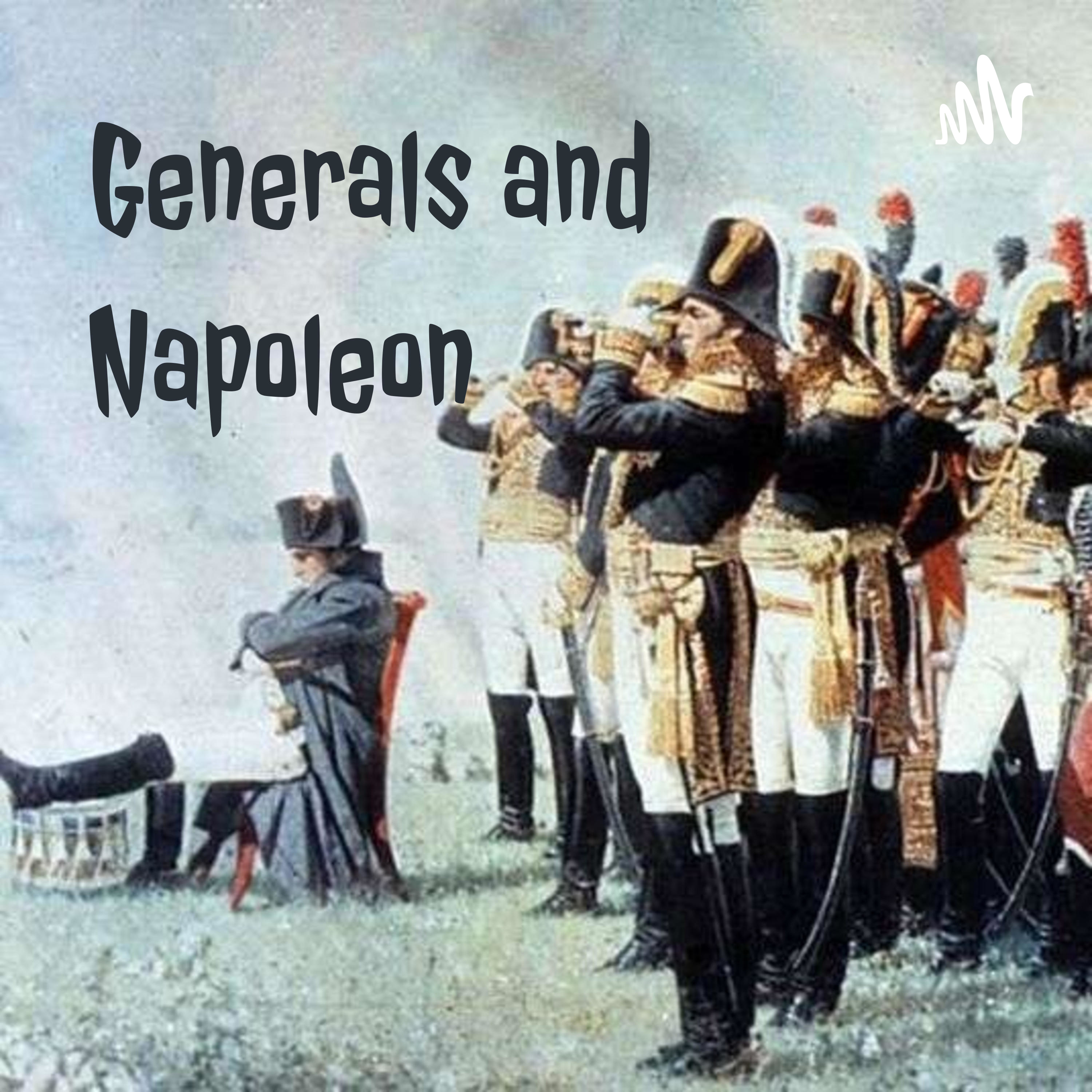
Generals and Napoleon
John W. Viscardo
Shipwrecks and Sea Dogs
Rich Napolitano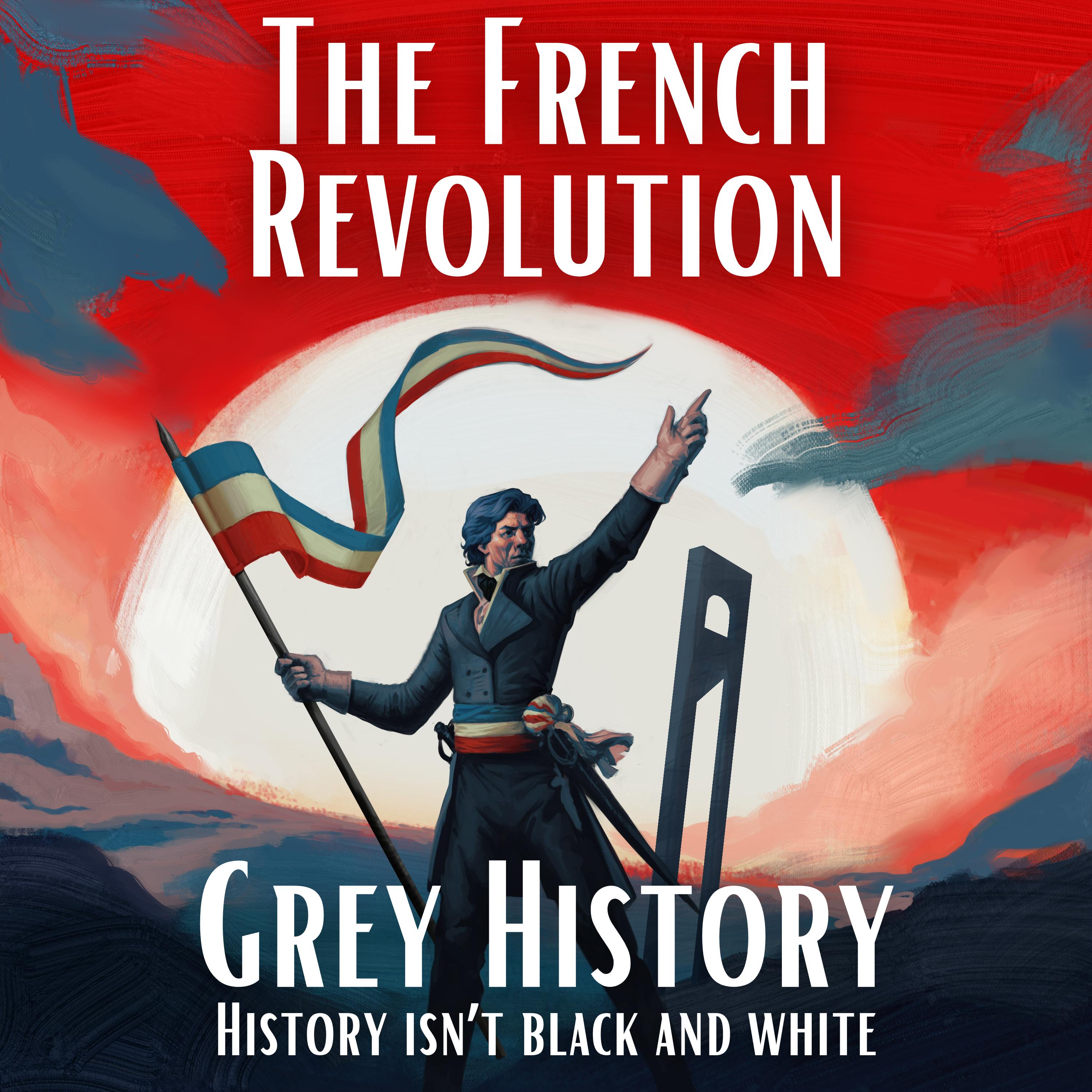
French Revolution & Napoleon (Grey History)
Grey History (William Clark)
The Life and Times of Frederick the Great
Alec Avdakov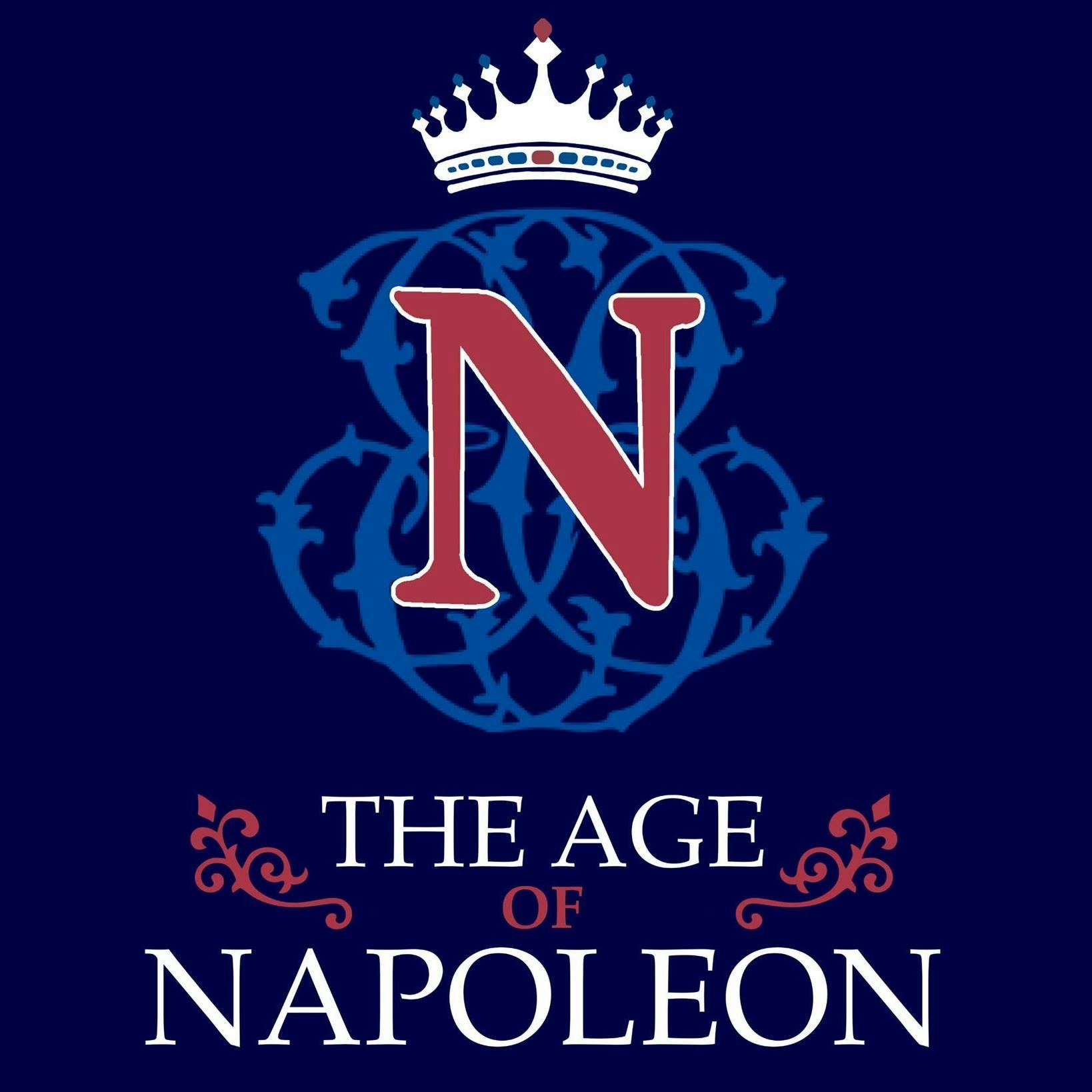
The Age of Napoleon Podcast
Everett Rummage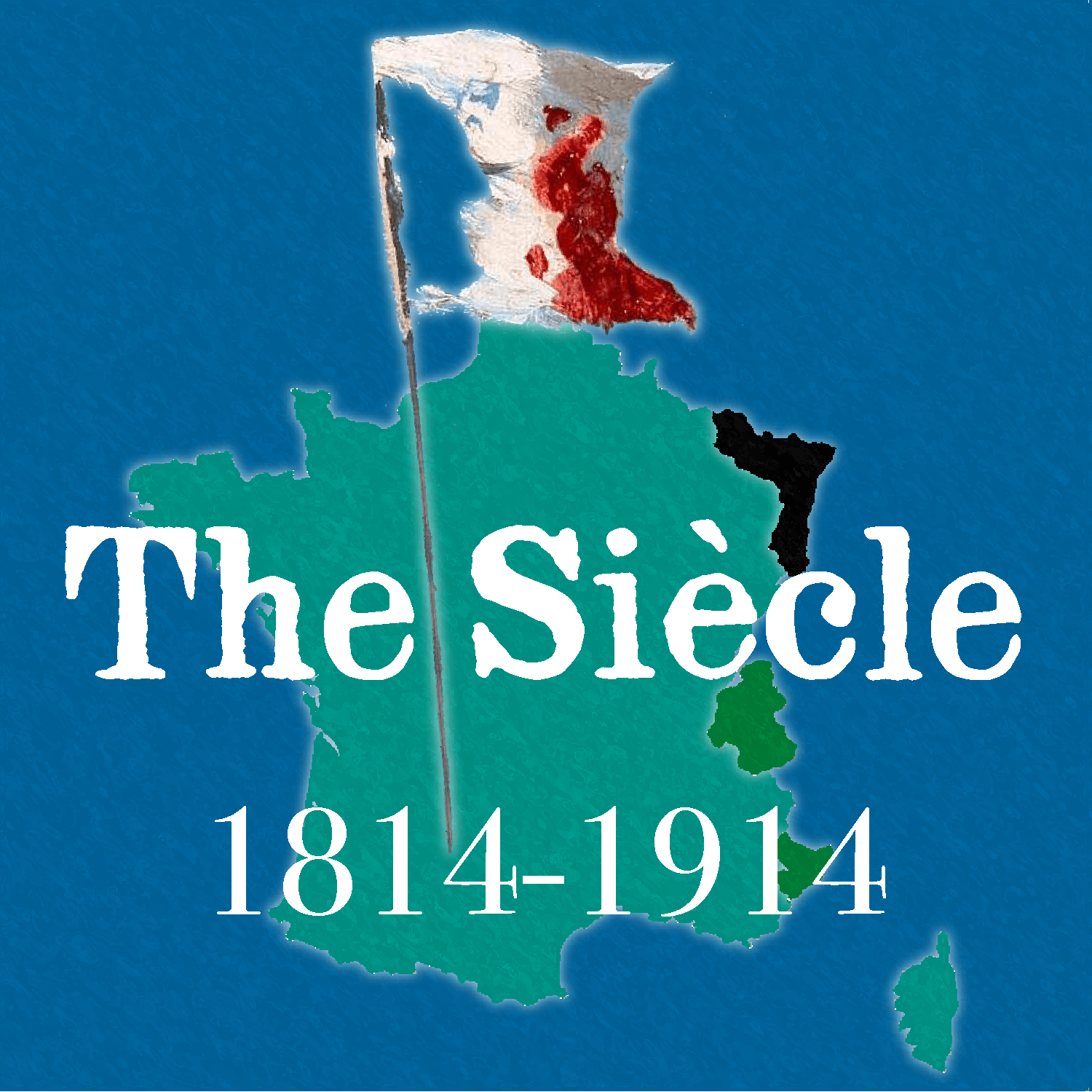
The Siècle History Podcast
Evergreen Podcasts
The Napoleonic Wars Podcast
Zack White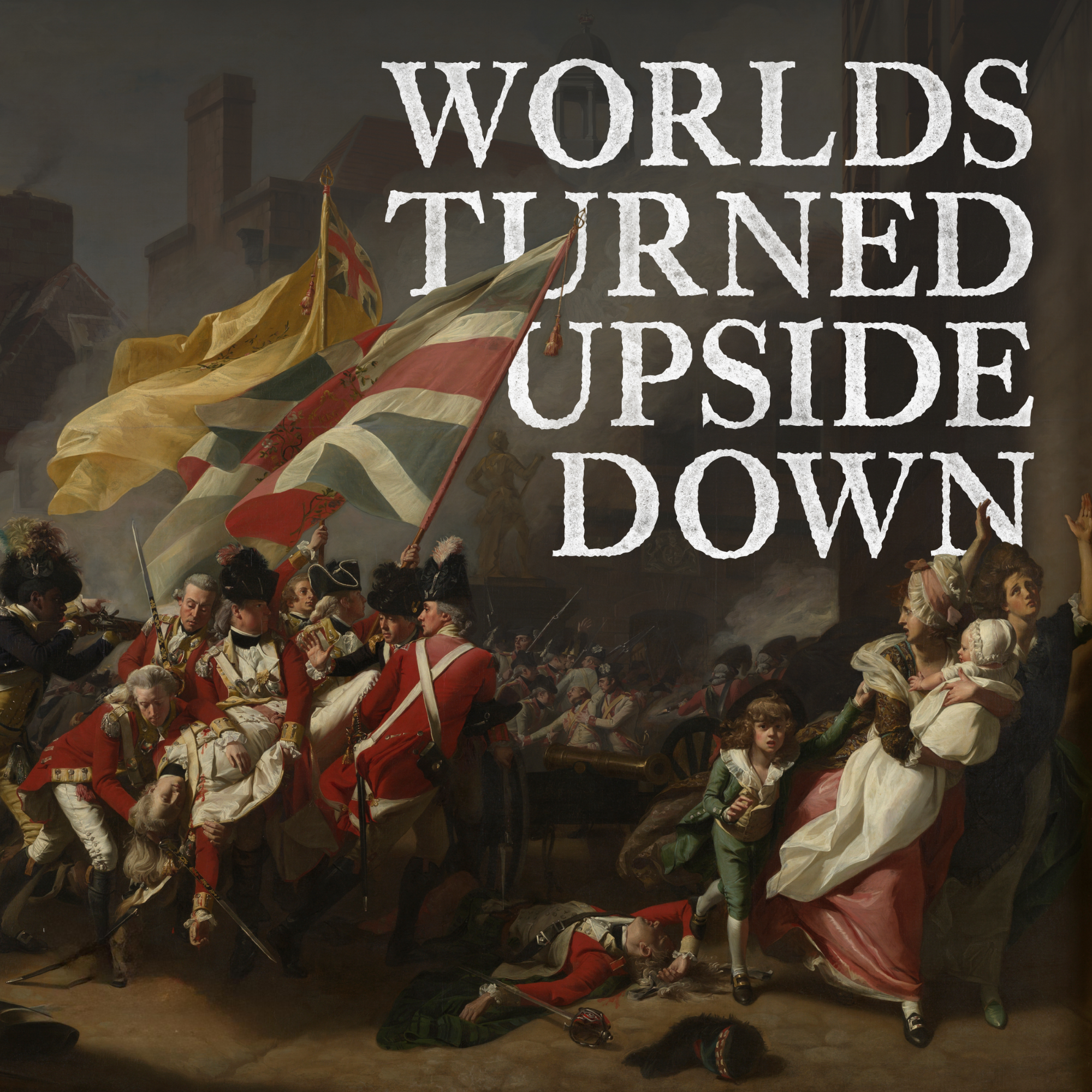
Worlds Turned Upside Down
Roy Rosenzweig Center for History and New Media
Empire-Builders
David Mainayar
Battles of the First World War Podcast
Mike Cunha
New York, Quebec, and The Water Route to the Center of the World
William Matthews
Deep into History
Deep into History
Battle Royale: French Monarchs
Ben Clarke and Eliza Sommers
A History of Japan
Justin Hebert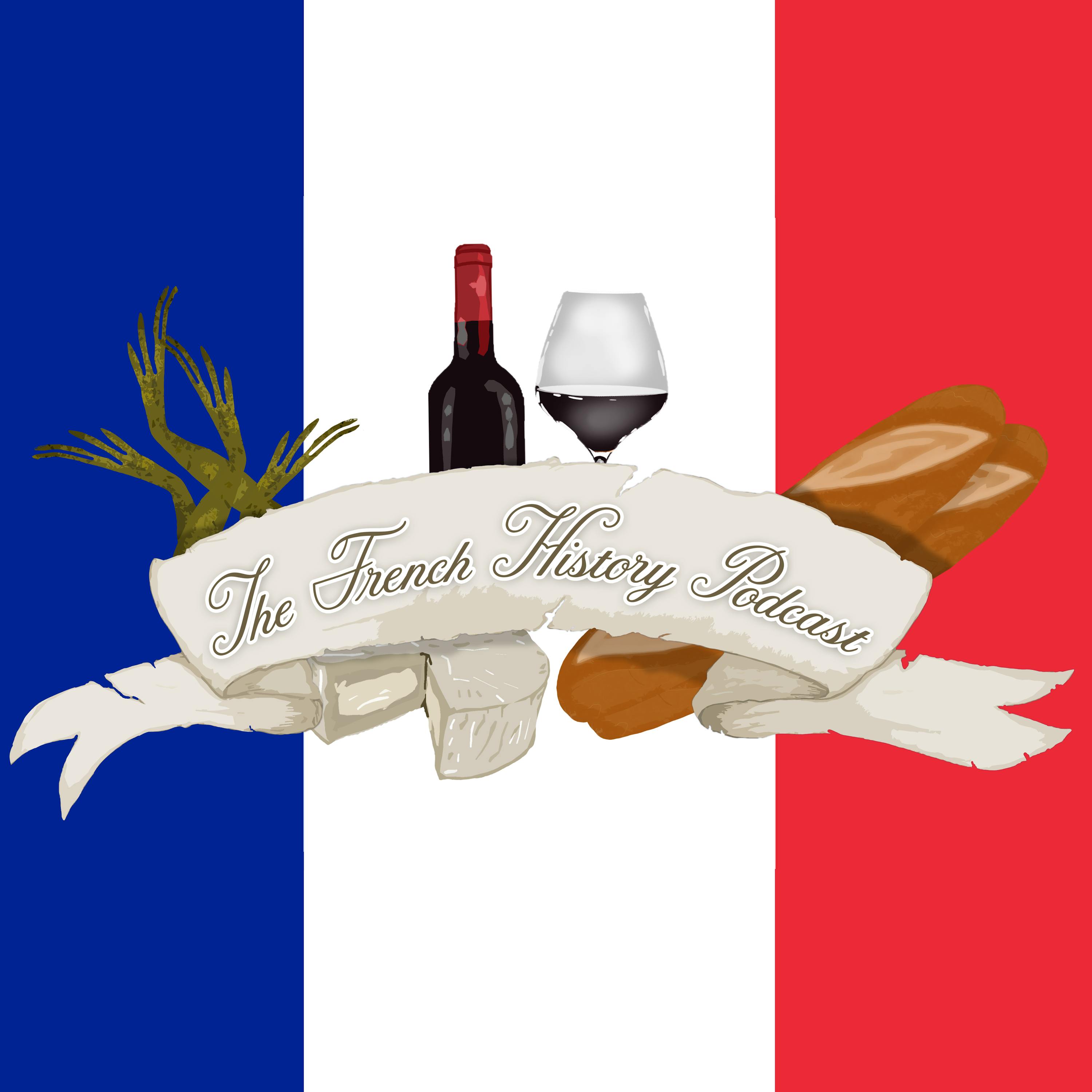
The French History Podcast
Evergreen Podcasts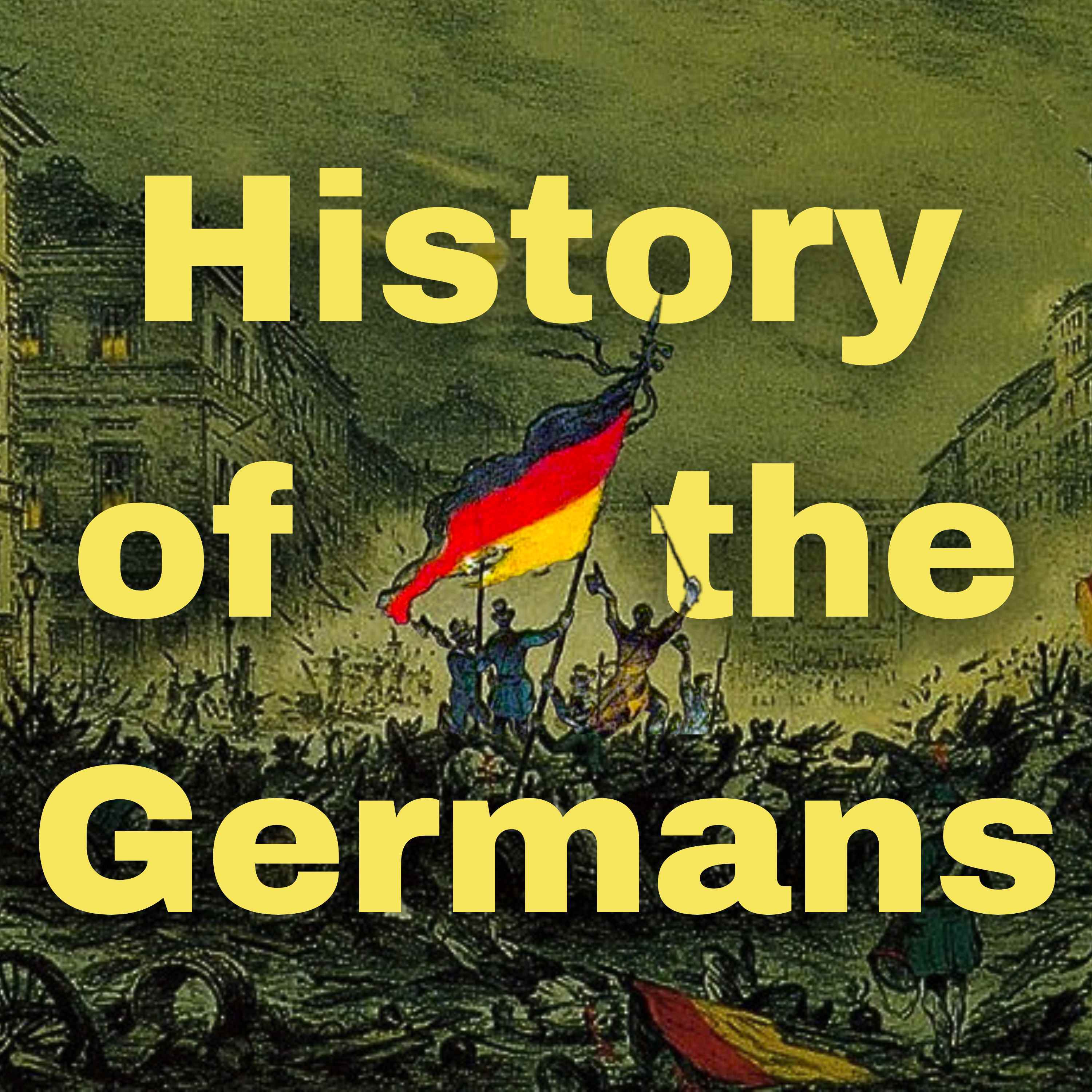
History of the Germans
Dirk Hoffmann-Becking
Half-Arsed History
Riley KnightFrench-Canadian Legacy Podcast
French-Canadian Legacy Podcast
The History of England
David Crowther
Canadian History Ehx
Craig Baird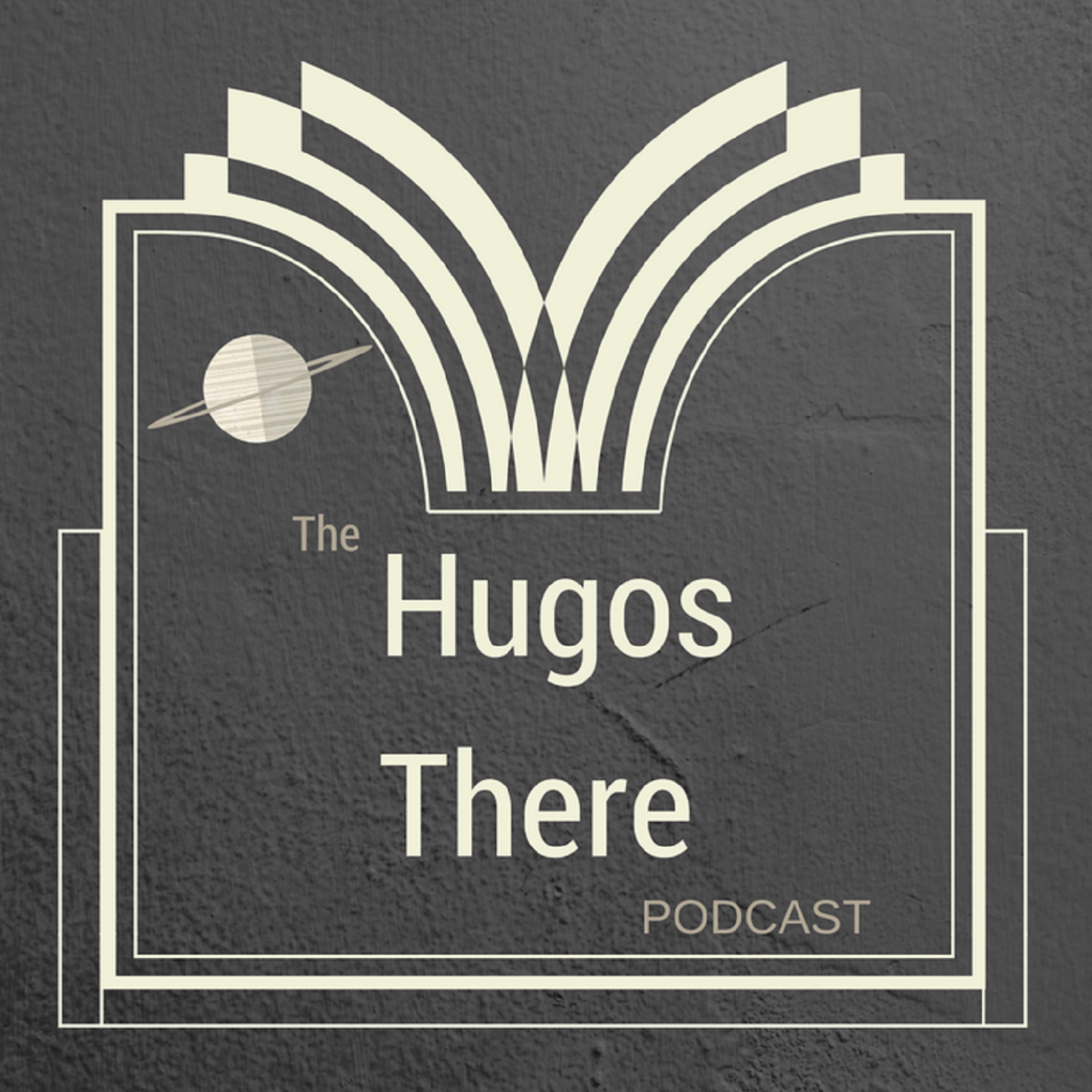
Hugos There Podcast
Hugos There Podcast
Hugo, Girl!
Hugo Girl

